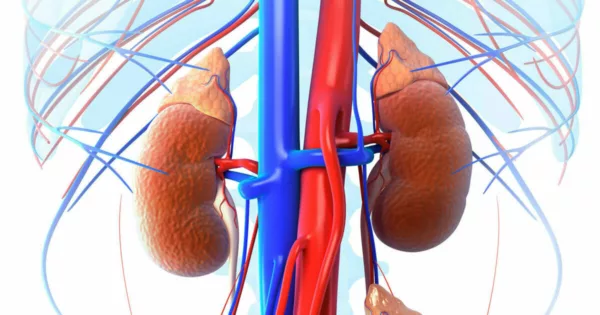Unmet needs in the management of genitourinary tumours in kidney transplant patients
The introduction of highly effective immunosuppressive drugs (calcineurin inhibitors, such as cyclosporine and tacrolimus, and mycophenolate mofetil) in recent years, combined with advances in surgical techniques and postoperative management, has significantly improved the survival rates of kidney grafts and kidney transplant recipients (KTR). The late causes of death (after one-year post-KT) reported over the last years have been cardiovascular disease, infections, and tumours.
What’s new in uro-oncology in kidney transplantation?
Some recent reports consider tumours the most common cause of death, accounting for 32% of all deaths. Urological tumours have shown an important excess death risk with a standardised mortality ratio of 5.44 (2.97-8.88) for kidney cancer (the highest after lymphoma), 2.56 (1.10-4.82) in bladder cancer, and 1.13 (0.31-2.69) in prostate cancer. [1]
The EAU Guidelines include only a small subchapter for the management of malignancy after KT, assessing only the evidence on the benefit of radical prostatectomy in the KT population with localised prostate cancer.
What are the unmet needs in genitourinary malignancies after KT?
First, the role of adjuvant intravesical treatments in non-muscle invasive bladder cancer (NMIBC), specifically to define the role of BCG. The current retrospective evidence has globally reported that BCG is well-tolerated but immunosuppression might blunt the local immune response required for BCG antitumour effect, delivering a good initial response, but higher rates of progression and cancer specific mortality compared to general population. [2] In this sense, new evidence is needed to confirm the inclusion of HR-NMIBC in the very high-risk group of progression of EAU guidelines.
Second, redefining the management of locally advanced and metastatic urological tumours in KT. There is an important proportion of patients with locally advanced and metastatic muscle-invasive bladder cancer (MIBC) that cannot benefit from chemotherapy due to low eGFR rates. Retrospective case control studies and case series suggest that organ transplant recipients with cancer do respond to immune checkpoint inhibitors (ICI), with overall response rates approaching 50%; however, the rates of organ transplant rejection also approach 50%, and this outcome is associated with high mortality. [3]
According to this evidence, KT patients with solid tumours were a contraindication for being included in clinical trials. Nevertheless, recent results from real-world data have revealed that KT recipients are willing to participate in prospective trials. [4]
A recent phase 1 study analysed the results of 17 KT patients with solid tumours (including kidney cancer), locally advanced and metastatic. [5] Patients were eligible if they had a creatinine concentration of less than 180 mmol/L, no or low concentrations of donor-specific HLA antibodies, and an ECOG status of 0–2. Patients received standard doses of nivolumab (3 mg/kg intravenously every 14 days for five cycles, then 480 mg every 28 days for up to 2 years). No patients had irretrievable allograft rejection without evidence of tumour response.
From the existing data, KTR can benefit from ICI therapy, and KTR are at risk of rejection and treatment-related allograft loss while on ICI therapy, but this risk can be reduced with optimisation of maintenance immunosuppression and potentially with close follow-up, allowing early intervention.
To address these unmet needs, the Transplantation section of the EAU is currently starting a registry to describe the epidemiology, clinical characteristics, treatment patterns, and clinical outcomes of bladder cancer after KT. If you are interested in participating, please contact Dr. Óscar Rodríguez Faba.
References:
- Taborelli M, Serraino D, Cimaglia C, Furian L, Biancone L, Busnach G, Bossini N, Citterio F, Veroux M, Iaria M et al: Cancer mortality after kidney transplantation: A multicenter cohort study in Italy. Int J Cancer 2024, 154(5):842-851.
- Herr HW, Dalbagni G: Intravesical bacille Calmette-Guerin (BCG) in immunologically compromised patients with bladder cancer. BJU Int 2013, 111(6):984-987.
- Barbir EB, Abdulmoneim S, Dudek AZ, Kukla A: Immune Checkpoint Inhibitor Therapy for Kidney Transplant Recipients - A Review of Potential Complications and Management Strategies. Transpl Int 2024, 37:13322.
- Ji S, Liu H, Pachella L, Stephenson RD, Groisberg R, Weiss SA: Use of immune checkpoint inhibitors in solid organ transplant recipients with advanced cutaneous malignancies. Front Transplant 2023, 2:1284740.
- Carroll RP, Boyer M, Gebski V, Hockley B, Johnston JK, Kireta S, Tan H, Taylor A, Wyburn K, Zalcberg JR: Immune checkpoint inhibitors in kidney transplant recipients: a multicentre, single-arm, phase 1 study. Lancet Oncol 2022, 23(8):1078-1086.
